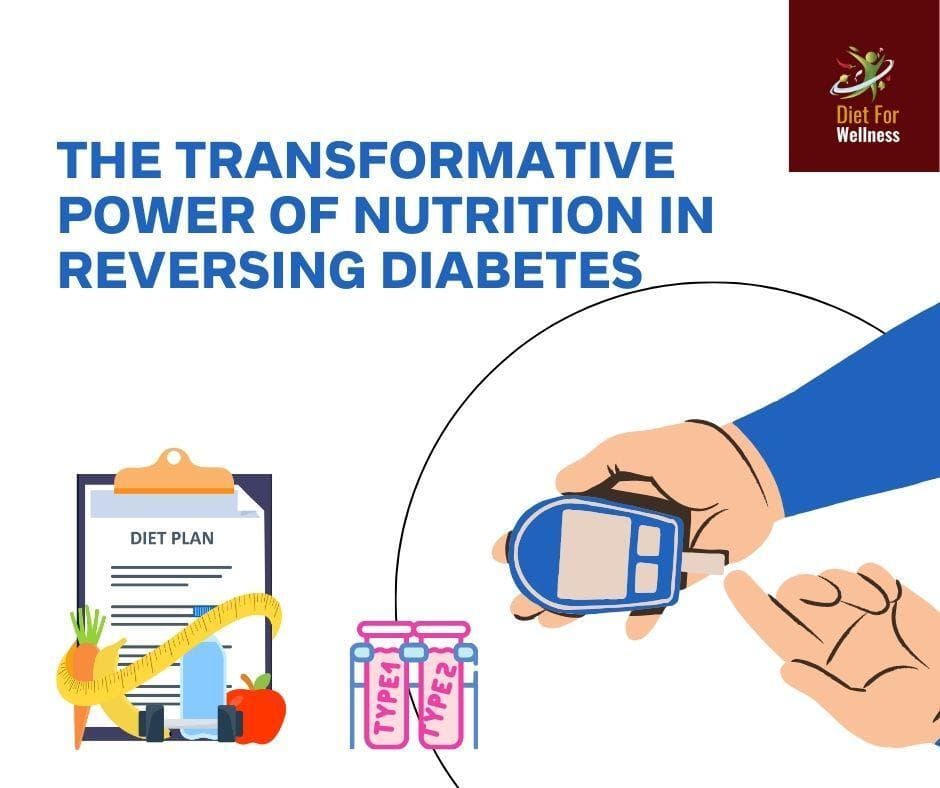Battling Type 2 Diabetes with Nutrition and Staying Healthy

While type 2 diabetes currently lacks a definitive cure, research indicates that for certain individuals, it’s feasible to reverse its effects. Implementing dietary adjustments and achieving weight loss helps attain and sustain normal blood sugar levels without the need for medication.
However, it’s crucial to note that reversal doesn’t equate to complete eradication of the condition. Type 2 diabetes remains a persistent ailment. Even if you enter a state of remission, where medication isn’t required, and your blood sugar levels remain stable, there’s always the possibility of symptoms resurfacing. Nevertheless, for some individuals, it’s feasible to go extended periods without encountering difficulties in managing glucose levels and the associated health risks linked with diabetes.
Living with diabetes can feel like a daunting journey, with its complex management and potential long-term health implications. So, what’s the pathway to reversing diabetes? The crucial factor appears to be weight loss. Shedding excess kilos not only aids in diabetes management but also holds the potential for living without diabetes entirely — particularly if the diagnosis is recent and insulin hasn’t been necessary.
The transformative power of nutrition in navigating diabetes, from diagnosis to reversal
Diabetes mellitus refers to a group of metabolic disorders characterized by high blood sugar levels over a prolonged period. The most common forms of diabetes are type 1 and type 2. Type 1 diabetes occurs when the body’s immune system attacks and destroys insulin-producing beta cells in the pancreas, leading to insulin deficiency. On the other hand, type 2 diabetes typically develops due to insulin resistance, where the body’s cells fail to respond effectively to insulin.
Regardless of the type, managing diabetes involves regulating blood sugar levels to prevent complications such as heart disease, kidney failure, and nerve damage. Traditionally, medication, insulin therapy, and monitoring blood glucose levels have been the cornerstones of diabetes management. However, recent research has highlighted the pivotal role of nutrition in not only managing but also potentially reversing the condition.
The Role of Nutrition
Nutrition plays a central role in diabetes management by influencing blood sugar levels, insulin sensitivity, and overall health. A balanced diet can help stabilize blood glucose levels, reduce insulin resistance, and lower the risk of complications associated with diabetes.
Emphasize Whole Foods- Focus on consuming whole, unprocessed foods such as fruits, vegetables, whole grains, lean proteins, and healthy fats. They are rich sources of minerals, vitamins, and fiber, which aid the regulation of blood sugar levels and improvement overall health.
Control Carbohydrate Intake- Carbohydrates have the most significant impact on blood sugar levels. Monitoring and controlling carbohydrate intake, especially refined carbohydrates like white bread, sugary snacks, and sodas, can help manage blood glucose levels more effectively.
Prioritize Fiber-Rich Foods- Fiber slows down the absorption of sugar and improves insulin sensitivity. Incorporate fiber-rich foods such as legumes, oats, nuts, seeds, and vegetables into your diet to help control blood sugar levels.
Choose Healthy Fats– Healthy fats, such as those found in avocados, olive oil, nuts, and fatty fish, can help improve insulin sensitivity and reduce inflammation. Include these fats into your meals in moderate amounts.
Limit Added Sugars and Processed Foods- Excessive consumption of added sugars and processed foods can contribute to insulin resistance and increase the risk of obesity and other metabolic disorders. Minimize intake of sugary snacks, desserts, and processed foods high in unhealthy fats and refined carbohydrates.
The key to reversing diabetes lies in addressing underlying factors such as insulin resistance, inflammation, and excess body weight through dietary modifications. From managing blood sugar levels to potentially reversing the condition, the impact of nutrition on diabetes cannot be overstated. With the right guidance, support, and commitment to dietary changes, diabetes no longer has to be a lifelong burden but rather a journey towards wellness and vitality.
